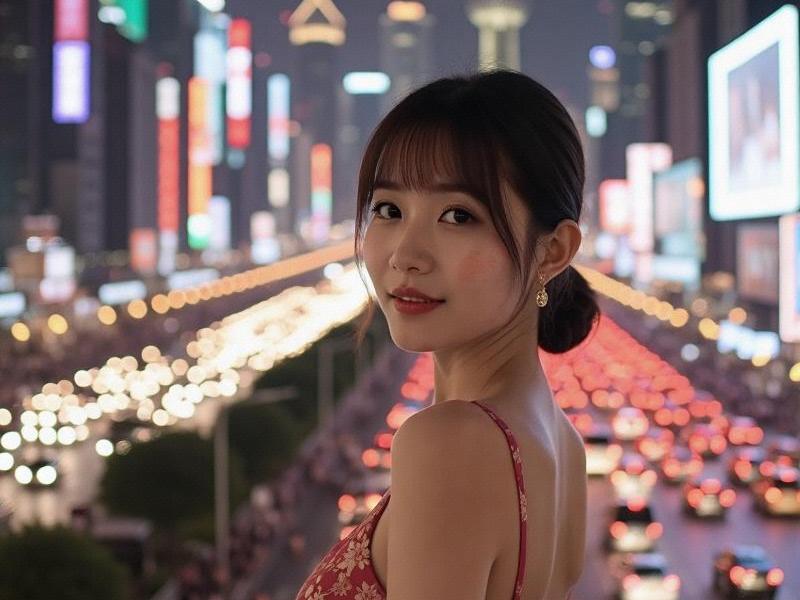This investigative feature explores how Shanghai's high-end entertainment club scene has evolved into a sophisticated nightlife ecosystem blending business culture with premium leisure experiences.

The neon glow of Shanghai's entertainment district pulses with a rhythm distinctly different from other global cities. Here in China's financial capital, the concept of "entertainment clubs" (商务会所) has developed into a unique cultural phenomenon that combines luxury leisure with business networking - a far cry from the simple KTV parlors of decades past.
The Changing Face of Shanghai Nightlife
Shanghai's entertainment club industry has undergone three distinct evolutionary phases. The 1990s saw the first wave of Taiwanese-style KTV venues along Hongmei Road. The early 2000s brought Japanese-inspired "snack bars" (スナック) in Changning District. Today's third generation represents a complete reinvention - multi-story entertainment complexes offering everything from private karaoke rooms to cigar lounges and gourmet dining.
These modern venues, concentrated in areas like the Bund and Xintiandi, cater primarily to business elites and affluent locals. The average spending per group ranges from ¥5,000 to ¥50,000, with some VIP rooms requiring minimum charges equivalent to a month's salary for average Shanghainese workers.
Architecture of Entertainment
The physical spaces themselves reveal much about Shanghai's club culture. Leading establishments like M1NT and Muse employ internationally renowned designers to crteeainteriors blending Art Deco Shanghai aesthetics with futuristic elements. Soundproofed rooms feature automated lighting systems synchronized with music playlists, while some premium venues incorporate virtual reality booths alongside traditional mahjong parlors.
上海龙凤论坛419
What sets Shanghai apart is the emphasis on privacy and exclusivity. Many clubs operate on membership systems with strict vetting processes. The Cathay Club on the Bund, for instance, requires recommendations from two existing members and maintains an 80% local Chinese clientele despite its Western-inspired concept.
The Business of Pleasure
Industry insiders reveal that about 60% of bookings come from corporate accounts rather than individual spenders. "These venues have become extensions of the boardroom," explains hospitality consultant Michael Zhou. "Important deals that start in office towers often conclude in private club rooms over whisky and song."
The economic impact is substantial. Shanghai's "night economy" accounted for ¥500 billion in 2024, with entertainment clubs representing about 18% of that total. The municipal government has actively supported this sector through policies like extended operating hours and streamlined licensing for qualified venues.
上海龙凤419社区 Cultural Hybridization
The entertainment offerings themselves reflect Shanghai's cultural fusion. While traditional Chinese songs dominate KTV selections, international music makes up about 35% of playlists in premium clubs. Many venues employ "PR consultants" who speak multiple languages to accommodate diverse clientele.
Food and beverage programs similarly blend East and West. It's not uncommon to see premium baijiu served alongside Japanese whiskies, or Cantonese dim sum paired with French pastries in these establishments.
Challenges and Regulation
The industry faces ongoing challenges, including strict anti-corruption measures affecting corporate spending and competition from emerging home entertainment technologies. In response, many clubs have shifted toward more transparent pricing models and family-friendly daytime offerings.
上海喝茶群vx Shanghai's entertainment authority has implemented a star rating system to standardize service quality while cracking down on illegal operations. Licensed venues now display QR codes that patrons can scan to verify authenticity and submit feedback directly to regulators.
Future Trends
Looking ahead, industry analysts predict several developments:
1. "Green clubs" focusing on organic beverages and sustainable design
2. Technology-integrated experiences using augmented reality
3. More female-oriented venues as professional women gain spending power
4. Hybrid spaces combining co-working areas with evening entertainment
As Shanghai positions itself as a global capital, its entertainment clubs continue redefining urban nightlife - creating spaces where business and pleasure intersect with distinctly Shanghainese flair. These venues don't just reflect the city's economic power; they've become active participants in shaping its social and cultural landscape.